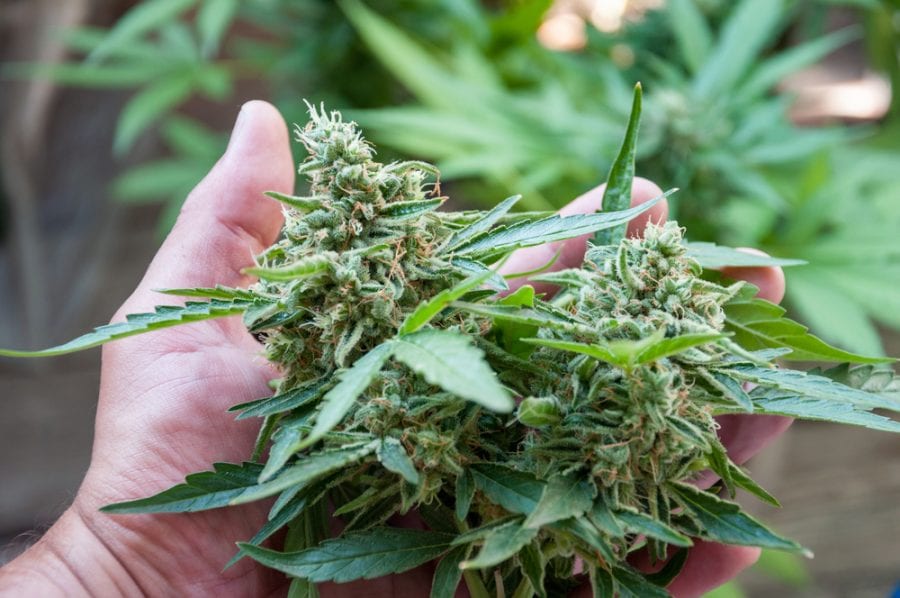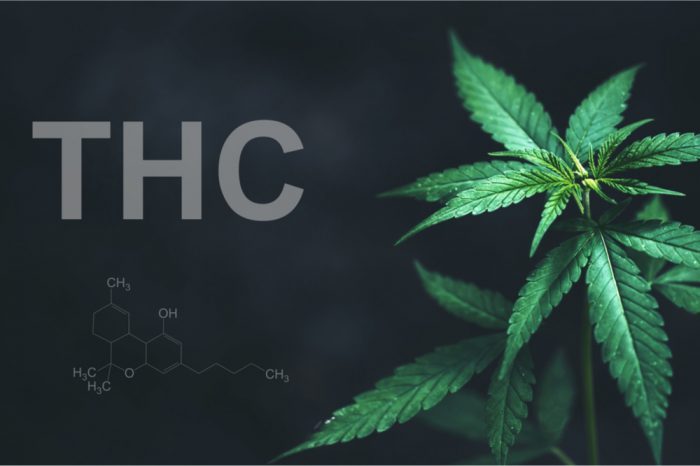In both in vitro and animal models of neuroblastoma, researchers found CBD effective. What does this mean for the future?
The scientific interest surrounding cannabis as a cancer therapy appears to be growing. More and more preclinical trials are detailing the positive effects that cannabinoids, particularly THC and CBD, can have on various cancer cell lines. Neuroblastomas are one of the latest to join the list. Researchers from Israel proved that in vitro and in vivo models of neuroblastoma were sensitive to CBD treatment, laying the groundwork for future clinical trials, and potential human treatment.
What is Neuroblastoma?
Neuroblastoma is a type of cancer that usually affects children under the age of five. But, cases can occur in older children as well. They start as neuroblasts, immature nerve cells that a growing fetus makes as part of its normal development process. Most neuroblasts mature into nerve cells by birth, but some may remain. These remaining neuroblasts can form a tumor called neuroblastoma. Like most cancers, the earlier the diagnosis, the better the outcome.
In children with stage one neuroblastoma, surgery may be the only treatment they need. Unfortunately, children who progress to stage 4 neuroblastoma will often require intensive treatment with a combination of therapies. Despite a multimodality approach, neuroblastoma prognosis is poor, and survivors experience serious side effects related to treatment toxicity. [1]London, W. B., Castel, V., Monclair, T., Ambros, P. F., Pearson, A. D., Cohn, S. L., … & Matthay, K. K. (2011). Clinical and biologic features predictive of survival after relapse of … Continue reading Non-toxic treatment options such as CBD, if proven effective, present as a very attractive treatment option.

CBD Decreased Cancer Cell Viability and Invasiveness
In a study published in Current Oncology (2016), the researchers exposed neuroblastoma cells to THC and CBD in the lab and then measured cell viability after twenty-four and forty-eight hours. [2]Fisher, T., Golan, H., Schiby, G., PriChen, S., Smoum, R., Moshe, I., … & Mechoulam, R. (2016). In vitro and in vivo efficacy of non-psychoactive cannabidiol in neuroblastoma. Current … Continue reading
Both THC and CBD demonstrated antitumorigenic properties, but CBD had superior effects. Although THC decreased cell viability, the differences were not statistically significant. CBD killed most of the cancer cells within twenty-four hours and after forty-eight hours, almost all the cells were destroyed. Additionally, compared to non-treated cells, CBD dramatically reduced cell invasiveness. By examining morphological changes, the researchers determined that these anti-cancer effects were mediated by apoptotic cell death. Microscopic analysis showed that CBD treatment resulted in the cells becoming rounded and swollen, losing their normal shape.
CBD Reduced Tumor Growth in Mouse Models of Neuroblastoma
Further, in the second part of the project, the researchers induced neuroblastoma tumors in mice and monitored tumor growth on a weekly basis. When the tumors reached a consistent size, the researchers randomized the mice into treatment and control groups. Similar to the in vitro experiment, treatment groups consisted of either THC or CBD, but not both. The results were consistent with the in vitro findings. Compared to untreated and vehicle-treated groups, CBD and THC treated mice experienced a significant reduction in tumor growth. However, CBD was more effective than its psychoactive counterpart. The CBD treated tumors had a median size of 2.31 cm3 compared to 3.46cm3 for THC-treated mice, 4.31cm3 for vehicle-treated mice, and 4.28 cm3 in untreated mice.
Again, the researchers determined that apoptosis was behind these in vivo anti-tumor effects. They analyzed tumor tissue samples with the apoptosis indicator cleaved caspase 3. The cells positive for cleaved caspase 3 were significantly higher in CBD-treated tumors, indicating greater levels of programmed cell death. How are these apoptotic mechanisms expressed? Interestingly, it appears that the most well-studied cannabinoid receptors may not play much of a role.

Classic Cannabinoid Receptors Take a Back Seat
The previous study’s authors note that although CBD’s neuroblastoma antitumorigenic molecular mechanisms are not fully understood, there is evidence that strongly suggests these effects are mediated by receptors other than CB1 and CB2 receptors. A review published in the British Journal of Clinical Pharmacology (2012) details the many other receptors that could be playing a major role in the destruction of neuroblastoma. [3]Massi, P., Solinas, M., Cinquina, V., & Parolaro, D. (2013). Cannabidiol as potential anticancer drug. British Journal of Clinical Pharmacology, 75(2), 303-312.
Multiple studies have shown that CBD acts as an agonist for vanilloid receptor 1, TRPV2, TRPA1, PPAG, and 5-HT1A. Moreover, others have demonstrated that CBD is an antagonist for TRPM8 and GPR55 receptors. A sound scientific rationale and evidence of preclinical effectiveness set the stage for investigations into the clinical effectiveness of cannabis-based medicine for treating neuroblastoma.
Where is the Research Headed Next?
As a non-psychoactive drug, CBD is an attractive treatment option for a disease that primarily affects children. However, considering that CBD and THC independently demonstrated anti-cancer effects, would a combined CBD/THC treatment have provided an even stronger benefit? The entourage effect theorizes that cannabinoids work together, and when taken together, they produce a stronger effect than when taken alone. This may be worth exploring in further clinical trials.
Importantly, there is evidence that CBD acts as a negative allosteric modulator at CB1, interrupting how THC binds to the receptor. [4]Laprairie, R. B., Bagher, A. M., Kelly, M. E. M., & Denovan‐Wright, E. M. (2015). Cannabidiol is a negative allosteric modulator of the cannabinoid CB1 receptor. British Journal of … Continue reading This reduces THC’s psychoactive and cognitive effects and could potentially make THC a more appropriate treatment in children. However, clinical trials will need to confirm the safety and effectiveness of a CBD/THC combined neuroblastoma therapy before widespread clinical implementation.
References






Cristina Henderson
Do You have the source of this info? The studies Or something like that? I want to have something to show our oncologist that he Will respect. Thanks
Jennifer Grant
Hi Cristina, all of the links are within the articles. Check for highlighted text. And generally, everytime it say “study”, there is a link to that particular study (unless it’s not yet available as free access).
Kristy Colakidis
Cristina Henderson my daughter has Neuroblastoma I was wondering how did you go with your oncologist and did they make any changes?
Angel Dean
There’s a little 6 yrs old girl in my town she has a brain tumor and Dr says nothing more he can do for her n that’s she is gonna die ????. Please help someone thank you from Ulster, pa
Jennifer Grant
Angel, cannabis is not a miracle medicine, sadly. At this point in the research, cannabis doctors will advise that cannabis is known to help with managing the side effects of chemotherapy and radiation. The ability of cannabinoids to fight cancer cells in the lab looks excellent, and in animal models, it’s very promising. We have to be very cautious because the human clinical trials are sparse. False promises dash a patient’s hope more than anything else. There is an important one on glioma in Spain, ongoing. We wait anxiously for more human clinical trials to get going and for results to come in. My heart breaks for this wee girl. 🙁
Wilmien
My friend’s child died of Neuroblastoma. He was using all forms of this “medicine”. It did not cire him
Jennifer Grant
I’m so sorry for your friend’s loss! There is nothing more horrendous than the loss of your child.:( Cannabis is not a miracle medicine, sadly. At this stage of research, they have only tested CBD on the neuroblastoma cells and are hopeful it could be a future treatment.
Ian Arthur Dewar Huddleston
I am keen to receive more information on this topic.
Christopher Robin Hulliger
Google Dr Allen H Green and Dr Christopher Robin Hulliger